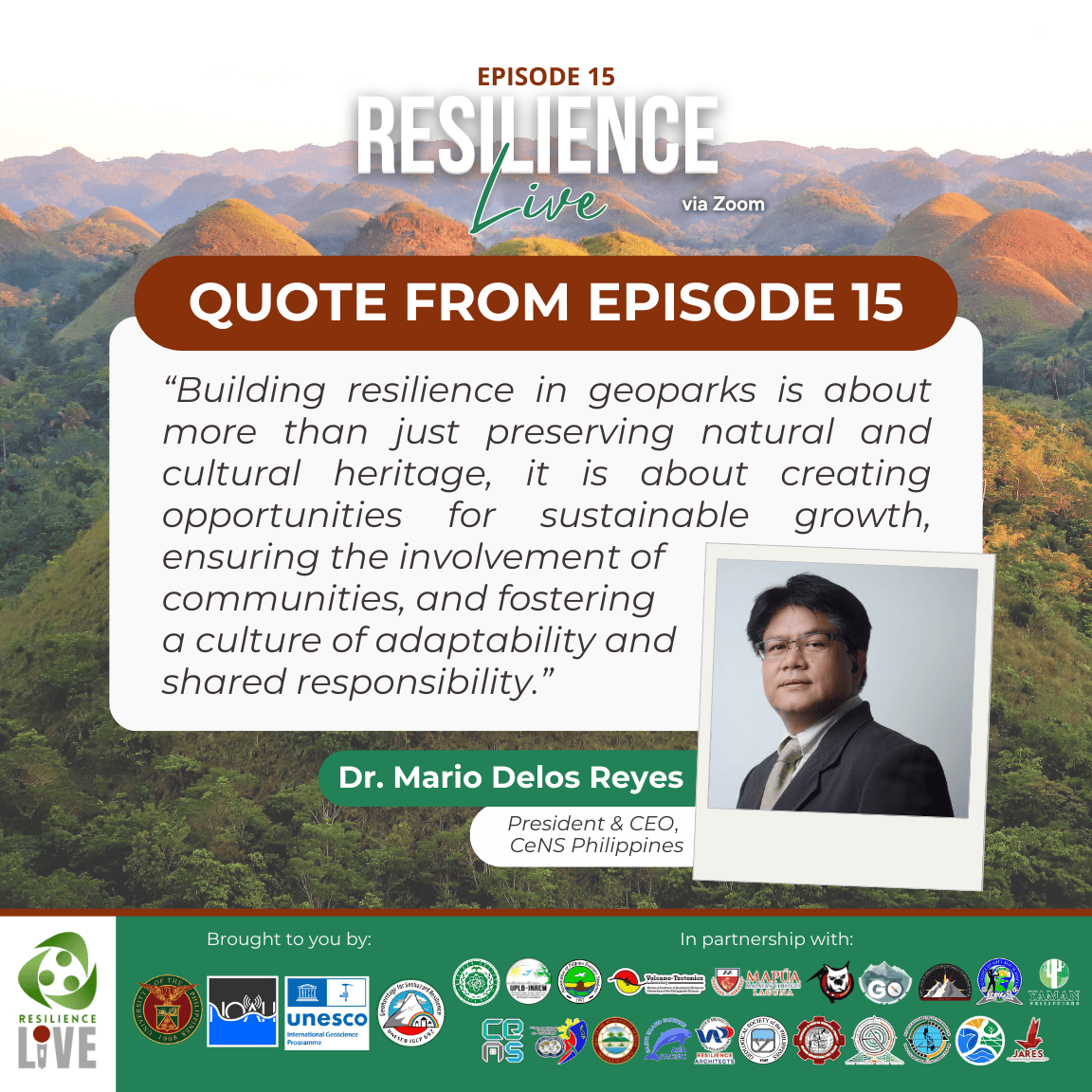By: Ella Danielle C. Santiaguel
In the 15th episode of UP RI’s Resilience Live webinar series, Dr. Mario Delos Reyes, a distinguished expert in sustainable and regional development, shared his insights on the critical role of spatial thinking in natural resource management, focusing on the Bohol Island UNESCO Global Geopark. A retired professor, former dean, and current professorial lecturer at the UP School of Urban and Regional Planning (UP SURP), Dr. Delos Reyes has long been at the forefront of resilience and sustainability advocacy. Leading a dedicated team of experts, he was pivotal in securing Bohol Island’s designation as the Philippines’ first and only UNESCO Global Geopark in May 2023. His presentation highlighted the years of collaborative efforts involving local governments, a commendable milestone.
The five geosite clusters of the geopark—geological, cultural, archaeological, biological, and ecological—which include the iconic Chocolate Hills, the Inabanga fault rupture, and the Philippine Tarsier Sanctuary were explored during the presentation, emphasizing the significance of weaving these into educational programs, tourism, and sustainable livelihood initiatives.
 A quote from Dr. Delos Reyes shared during Resilience Live Episode 15 last November 28, 2024.
A quote from Dr. Delos Reyes shared during Resilience Live Episode 15 last November 28, 2024.
As quoted by Dr. Delos Reyes, “Building resilience in geoparks is about more than just preserving natural and cultural heritage, it is about creating opportunities for sustainable growth, ensuring the involvement of communities, and fostering a culture of adaptability and shared responsibility.”
During the episode, Dr. De los Reyes also engaged in a lively open forum, raising questions about policy support for aspiring geoparks, the challenges of integrating geopark plans with local development frameworks, and strategies for managing non-native species like mahogany in Bohol’s man-made forests. During this portion, he called for stronger policies to protect geosites, enhance community involvement, and increase funding for geopark initiatives.
A participant also sought advice for regions aspiring to achieve UNESCO geopark status. In response, Dr. Delos Reyes outlined the rigorous process, emphasizing the need for comprehensive documentation, community engagement, and alignment with international standards.
 Participants during the Resilience Live Episode 15.
Participants during the Resilience Live Episode 15.
The session concluded with reflections on Bohol Island’s future, highlighting the need for a robust management plan and ongoing climate risk assessments to ensure the geopark’s sustainability. Dr. Delos Reyes expressed optimism that Bohol’s success could inspire other regions to follow suit.
